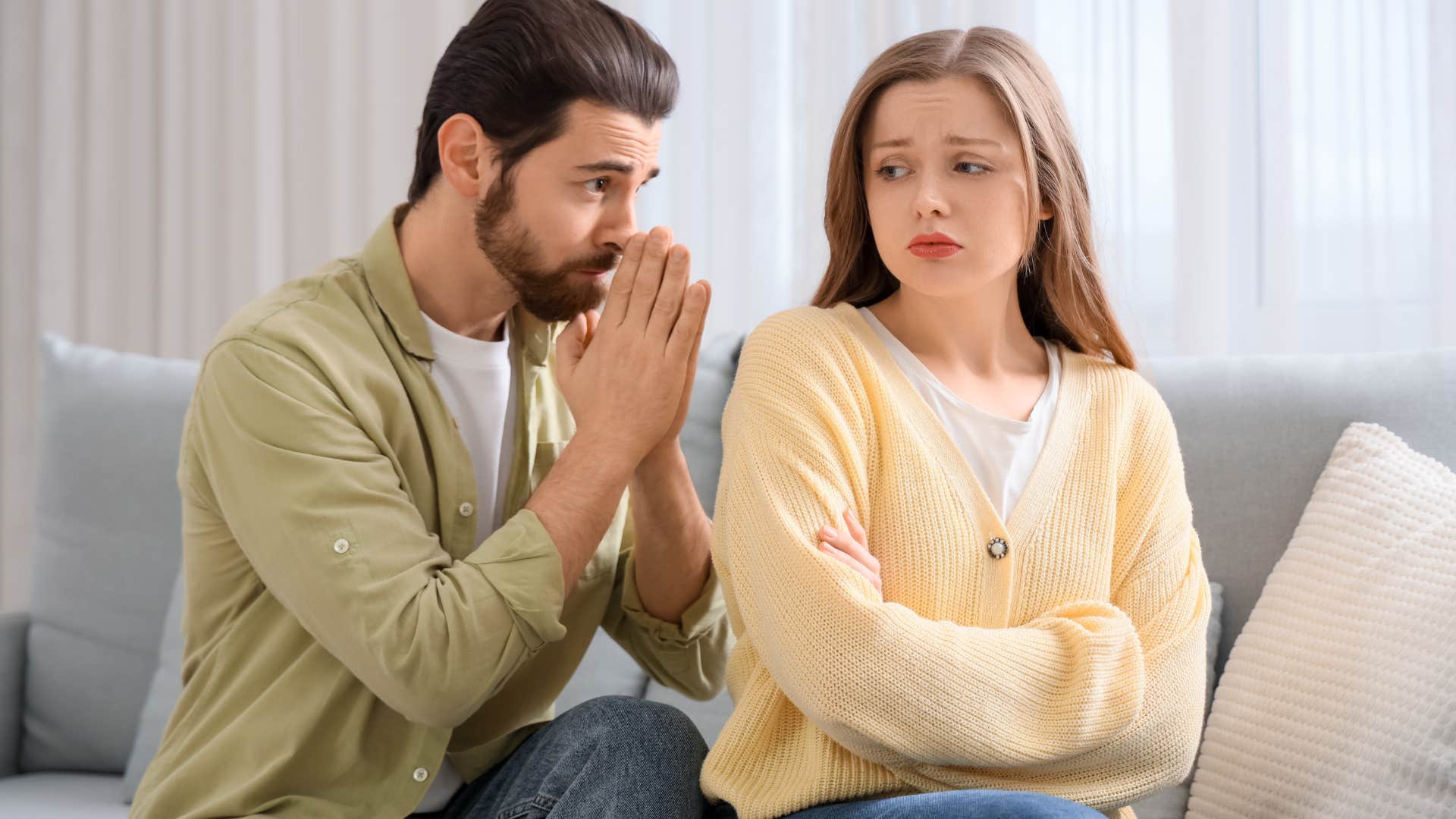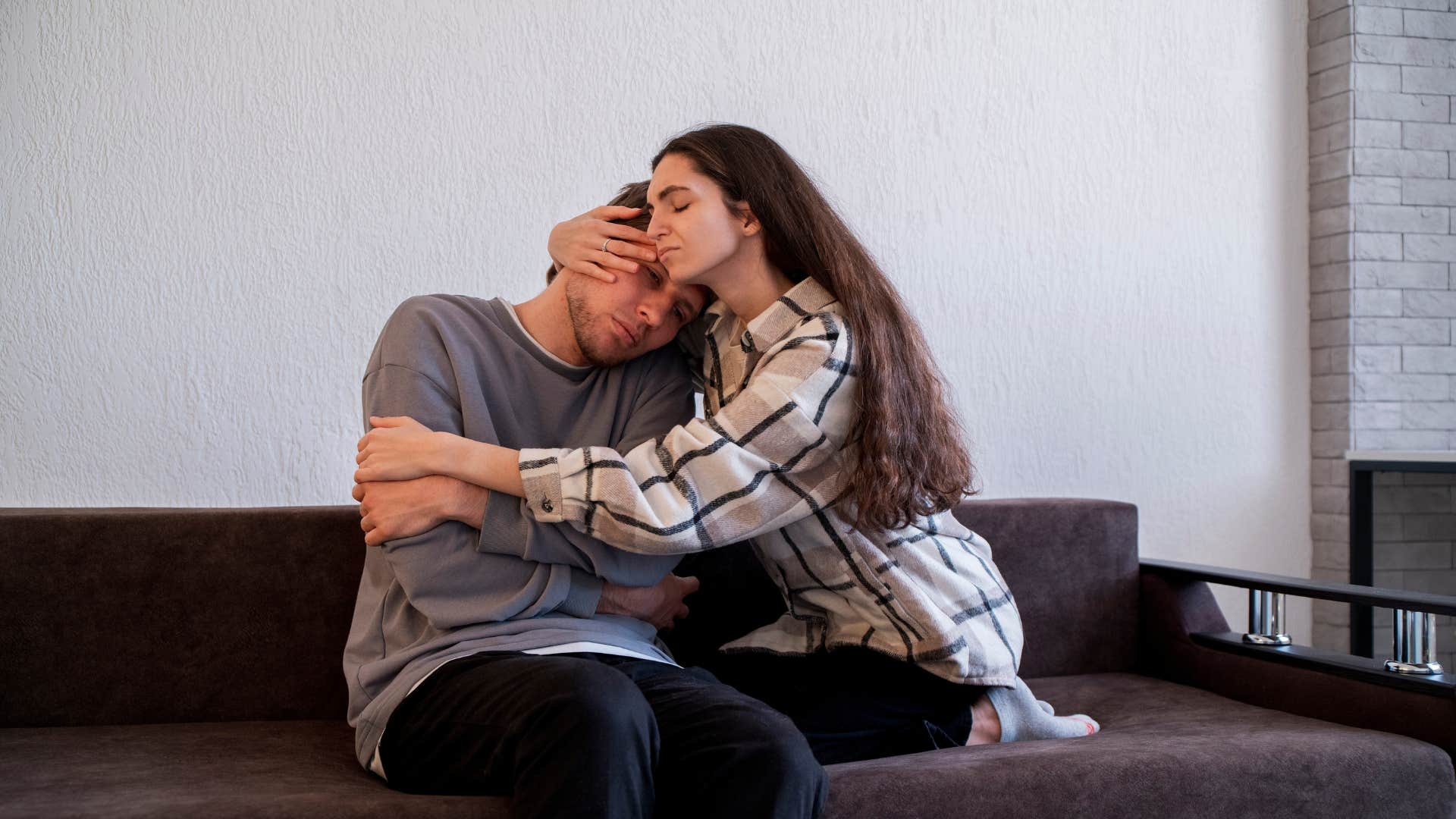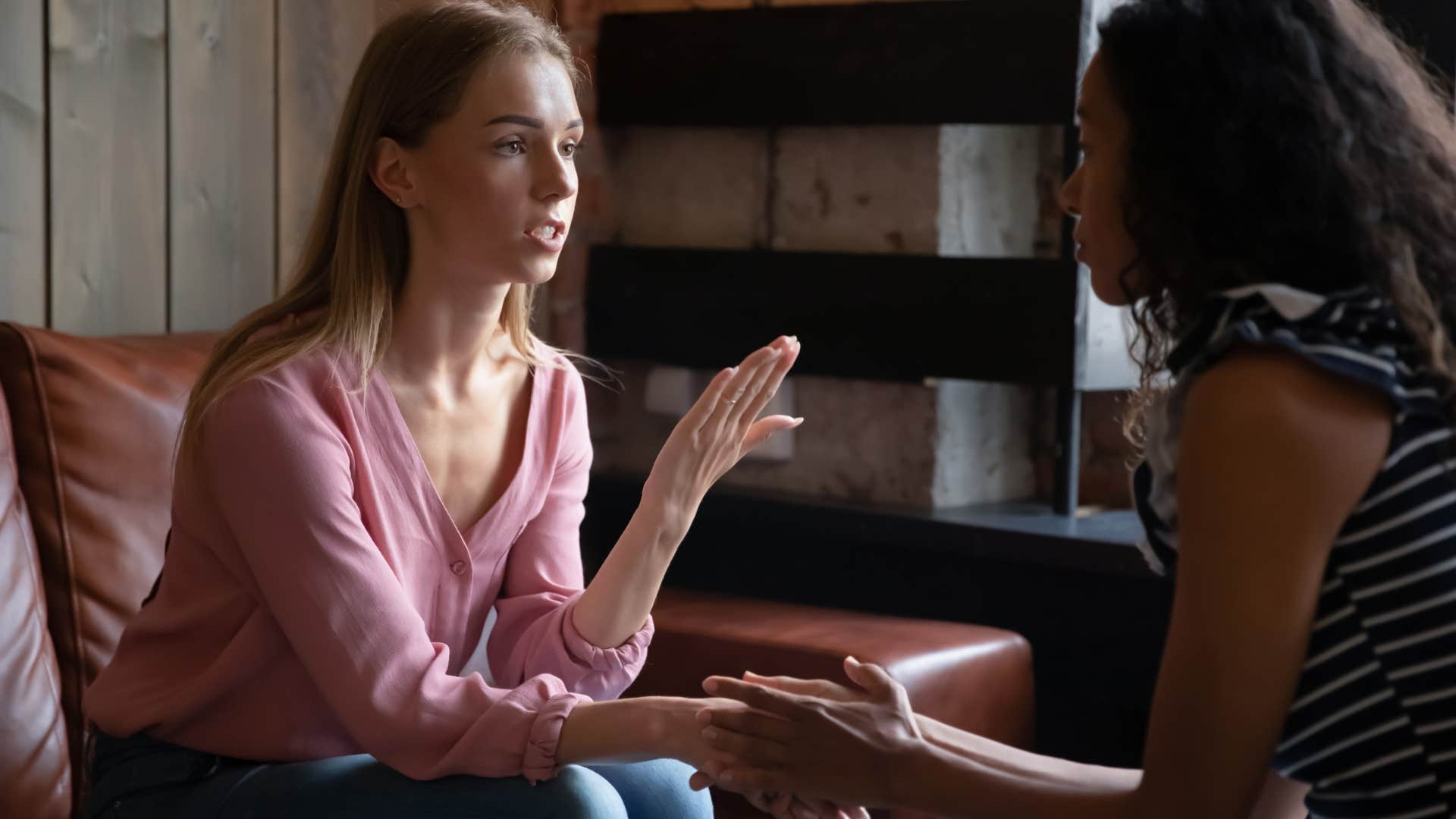Experts Say There's 6 Situations When You Don’t Have To Accept An Apology (And You’re Still A Good Person)
Forgiveness doesn't always mean letting someone back in.
 Dean Drobot | Canva
Dean Drobot | Canva ‘Forgive and forget’ is a mantra often heard, telling us to let go of the past and any associated negative emotions and move on, but that is much easier said than done. There are times in life when you will find yourself unable or unwilling to accept an apology from someone who has wronged you.
Sometimes it might feel that as long as a person issues an apology, you have a duty to forgive their transgressions. But that is not necessarily the case. There are several reasons why an apology just might not be good enough. According to studies, most humans apologize in an effort to be forgiven and to repair the damage they did to the relationship.
Apologies are like compensation for transgressions and misdeeds. They can change a victim's mindset, softening their stance and removing the need to seek vengeance. But just because an apology is given doesn't mean the culprit must be forgiven, especially when it is not given in good faith.
Experts say there are six situations when you don’t have to accept an apology — and you’re still a good person:
1. For many complex reasons
 Pixel-Shot / Shutterstock
Pixel-Shot / Shutterstock
“Life is a beautiful tapestry of emotions and interactions, and navigating this complex web with grace and understanding is essential. In this context, apologies play a critical role. They are our means of admitting mistakes, expressing remorse, mending bridges, and rekindling relationships. Yet, it's crucial to remember that the right to offer an apology doesn't automatically confer the obligation to accept it.
Insincerity
An apology should come from the heart, filled with remorse for the transgression and understanding of the hurt it caused. It may not warrant acceptance if it feels empty, rote, or mechanically delivered without genuine feeling.
Lack of change
An apology holds real weight when a behavior change accompanies it. If the person apologizing is a repeat offender, constantly hurting you in the same way, and then apologizing without making any effort to change, you may not feel inclined to accept their apology.
Manipulation
Apologies can sometimes be used as tools of manipulation, where the offender uses them to evade responsibility or to control you emotionally. In such situations, accepting the apology might reinforce harmful dynamics.
Violations of core values
Some actions might deeply violate your core values or beliefs, the kind of actions that make it impossible to restore the trust and respect that was once there. If the offense falls into this category, you might find it impossible to accept an apology.
Non-apology
"I'm sorry you feel that way" isn't an apology. It's a deflection of responsibility. Genuine apologies acknowledge one's own actions and take responsibility for them.
Safety and well-being
If accepting an apology might put your physical or emotional safety at risk, or if it would mean tolerating ongoing abuse or harm, it's critical not to accept it."
The complexity of apologies is influenced by perceptions of sincerity, the relationship between parties, the nature and severity of the consequences, and personal variables related to both the wrongdoer and recipient, research has shown. Understanding these nuances empowers individuals to make decisions that prioritize their emotional safety and well-being.
2. Because too much damage was done
 Pixel-Shot / Shutterstock
Pixel-Shot / Shutterstock
"Various rationales for not accepting an apology include distrust of a person, unwillingness to absolve them, preference to stop future communication, and the significant damage that cannot be undone. Nevertheless, no reason needs to be given beyond saying something such as: "I can imagine why you have a need to or want to apologize, but given the circumstances, I prefer not to accept it."
—Ruth Schimel, Ph.D., Career Consultant
While apologies can help rebuild trust in many situations, this depends entirely on how much harm was done, research stresses. Accepting an apology doesn't erase what happened, and you're not obligated to offer absolution simply because someone expresses regret for actions that fundamentally changed your life.
3. Because there's a lack of accountability
 MAYA LAB / Shutterstock
MAYA LAB / Shutterstock
"The person giving the apology expresses remorse that their action caused you to feel a certain way, but they have not expressed remorse for doing the thing that made you feel that way. "I'm sorry you feel that way." This shifts the focus onto your response, as opposed to their behavior. It sounds like an apology, but it's really not."
—Jennifer Hargrave, Divorce Attorney
When the person who hurt you refuses to acknowledge what they actually did wrong and instead focuses on your emotional response, they're prioritizing their own comfort over genuine repair. Research demonstrates that when someone apologizes without taking ownership and instead assigns blame to external factors, the apology is far less likely to be viewed as genuine or sincere.
4. Because the apology doesn't feel genuine
 Mladen Mitrinovic / Shutterstock
Mladen Mitrinovic / Shutterstock
"Most apologies are manipulation. However, if you receive a heartfelt expression of regret, you have two choices: Accept the apology and forgive the person. If this is your decision, you will need to clarify how it happened and assure yourself that it will not be repeated.
Your other option is to accept and disconnect. Accept the apology and decide that you no longer wish to be vulnerable to future behaviors similar to this. If you choose disconnection, you must express your decision calmly and without any wiggle room so that you avoid future unpleasantness."
—Susan Allen, CEO of The Marriage Forum
Research indicates that people who perceive themselves as having clearer boundaries and personal power in relationships are more likely to forgive. Maybe this is because they have fewer self-protection concerns and feel secure in their ability to maintain those boundaries if needed.
5. Because in your heart, it doesn't feel right
 Mike_shots / Shutterstock
Mike_shots / Shutterstock
"If you truly feel that you don't want to accept an apology, you don't have to. And I would add, you also don't need to feel guilty about it. This can be done elegantly and self-honoring."
—Marla Martenson, Transformational Coach
Research shows that acknowledging emotions without judgment allows people to have a healthier relationship with their feelings and feel more empowered in managing them. Instead of forcing yourself to accept an apology you're not ready for, being authentic to yourself and not pretending to feel differently represents one of the highest levels of self-validation.
6. Because you are not ready yet
 fizkes / Shutterstock
fizkes / Shutterstock
"Don't accept an apology when you are not ready. The vitally important 'not ready' stage, is when you get to feel your feelings all the way through. Cutting this stage short results in stored emotion that will come out sideways in future interactions - stunning the person who thought you had forgiven them."
—Michelle Thompson, Law Of Attraction Life Coach
Research emphasizes that individuals need time to experience and process their emotions before they are ready to move forward, as this allows them to develop resilience by learning they can endure difficult emotions. When you're not ready to accept an apology, honoring that internal timeline is about allowing genuine emotional healing to occur instead of creating a false sense of closure that may cause unresolved feelings to resurface later.
NyRee Ausler is a writer from Seattle, Washington, and the author of seven books. She focuses on lifestyle and human interest stories that deliver informative and actionable guidance on interpersonal relationships, enlightenment, and self-discovery.

